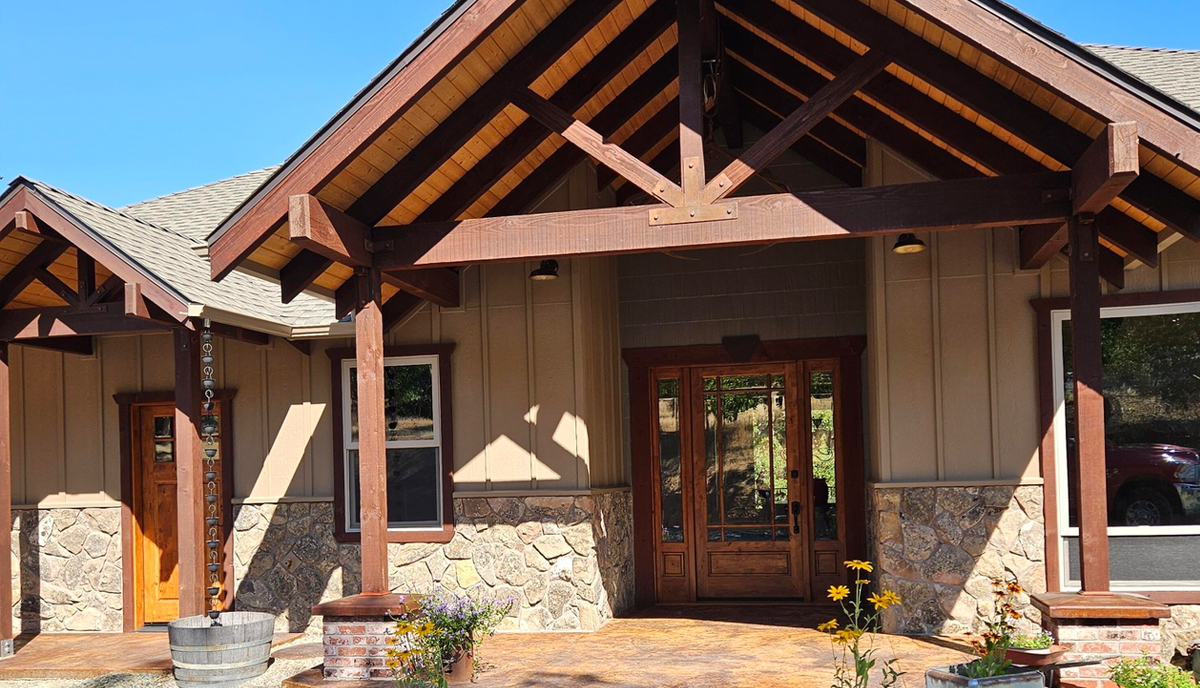(Today’s guest post comes from Angela Petteys. I recently had this very issue in my life and ended up making renovations.)
When you purchased your home, you likely bought it because it worked well for a specific need you had. Maybe it was a comfortable size for you and your family, near parks and good schools. Or perhaps it was close to work or a thriving downtown area. But what happens when your house no longer meets those kinds of needs? Perhaps the size of your household has changed, or you find yourself wanting/needing features that your current home doesn’t have.
When you reach a point where your home just isn’t working out anymore, you have two main options: you can either buy a new house or renovate your current one so that it better meets your needs. Both options involve a significant financial investment on your part and both processes will come with their own frustrations and challenges to deal with. So how do you know which option is better for you?
Thinking About Moving?
The key to figuring out whether it’s better to buy a new house or renovate your current one is to think about what, exactly, the problems are that you need to solve. Renovations can help with a lot of things, but there are certain issues they simply aren’t going to solve. For example, if the kids have grown up and moved out, and now your home feels too big and requires too much upkeep, moving to a smaller property would certainly be the best option. Or if you don’t like your neighbors or want to be closer to work, then a home renovation is unlikely to make you happier with your current home in the long run.
If a renovation could help solve some of the problems with your current home, the next question to ask is: how extensive would those renovations need to be? In some cases, buying a new home may be the more cost-effective option in the long run. Let’s say your family is starting to outgrow your current home. Adding a second story would add more livable space to your home. But according to Angi, the average cost of a full second story addition ranges between $100,000 and $600,000. Depending on your location and the amount of square footage you’d be adding, moving to a larger home may be less expensive, take less time, and spare you the frustration of living in a construction zone.
Not only do you need to think about how much renovations would cost upfront, it’s important to think about how those projects would impact your home’s value in the long run. If your home requires a lot of work to make it more suitable to you, would you run the risk of over improving? Let’s go back to the example of adding a second story to a home. If this house is in a neighborhood full of houses that are on the smaller side, a home addition may work against the owner when they decide to sell later since potential buyers interested in that neighborhood are likely specifically looking for a smaller home. And when the house does sell, it might sell for less than expected.
When you’re thinking about the costs involved with each option, don’t forget to account for the expenses moving entails, not just the price of the house itself. Buying a new house and moving can come with a lot of hidden costs that people often forget to plan for, such as closing costs, moving van rentals, utility deposits, and packing supplies. You may also need to factor in expenses like hotel stays, boarding pets, or childcare arrangements for the time you’ll spend dealing with the process of moving from one house to another. These types of hidden costs can add up quickly, so it’s important to make sure you’ve fully covered your bases.
Of course, it’s also important to consider the current market trends. If you live in a desirable area and the market is favoring sellers, it may be a great time to sell – especially if you’ve already made improvements that would help you sell for a profit. Would you be able to move to an area where property values are likely to increase? Even if the market isn’t great for sellers, your current home could still potentially offer an additional source of income. If you don’t need to sell your current home to buy a new one, would you be interested in turning it into a rental property, either permanently or just until market conditions change?
The Benefits of Renovating
There are many reasons why buying a new home simply might not be a good option. For families with school-aged children, they might want to avoid making the kids change schools. Or if the housing market is competitive, finding a new house without overpaying can feel like a total pipe dream. It’s also very likely that a home renovation may just be the most sensible way to be happier where you live.
Yes, renovations are stressful, disruptive, and expensive – but they’re very often less expensive and more practical than going through the process of buying a new home and moving. Renovations can solve a wide range of issues with your home, from cosmetic updates and adding new features to improving the layout of your house. There’s simply no need to buy a whole new house if your main issues are that the kitchen looks a bit dated or if you’d like to turn the basement into a home office, a home gym, or an additional living area. Especially when renovating means you can make sure everything can be done exactly the way you want it to be – no need to settle for something that’s close enough.
Renovating a home can not only help you be happier where you currently are, it can be an opportunity to boost your home’s value. Certain types of renovations can help you get a better price when you’re ready to sell. However, not all home renovations necessarily have a high return on investment, so it’s a good idea to do some research to find out if the projects you’re considering would have a good bang for their buck. For example, kitchen and bathroom renovations generally tend to have a good ROI, but only if you don’t go overboard. A kitchen full of high-end appliances and features might seem like a dream if you love to cook, but probably won’t appeal to a potential homebuyer who prefers ordering pizza. When it comes to these rooms, it’s best to stick to mid-range improvements like replacing cabinets, counters, and other fixtures to avoid over improving.
The Finances of Renovating vs. Moving
Once you’ve figured out whether moving or renovating your home is the best route for you, there’s the next big question: how are you going to pay for it?
If buying a new home is best for you, your main options are going to be either getting a mortgage or paying cash. There’s also the matter of getting a down payment. When you already own a home, you have the benefit of being able to use funds from the sale of your current home to buy your new one. But what if you’re in a position where you need to buy a new home quickly and don’t necessarily have time to wait for your current home to sell first? In this type of situation, you may need a bridge loan.
Bridge loans are a type of short-term loan intended to help people quickly purchase new homes. While a mortgage can take decades to fully pay off, the terms of a bridge loan typically last between six months and a year and you will need to secure the bridge loan in addition to the mortgage for your new home. A key benefit of getting a bridge loan is that it can help you get a new house without having to make a contingent offer that hinges on the sale of your current home. However, be aware that using a bridge loan to buy a house might put you in the position of owning two homes with two mortgages for a little while. Also, if your home doesn’t sell, you run the risk of foreclosure.
For a home renovation, you have the options of paying cash, putting it on a credit card, or getting a loan or line of credit. Aside from a traditional personal loan, there’s the option of putting the equity in your home to work through a home equity loan or a home equity line of credit (HELOC).
Both HELOCs and home equity loans use a home as collateral, but they’re structured differently. With a home equity loan, you receive your loan in a lump sum and start making payments right away. With a HELOC, that money is available to you on an as-needed basis for a certain period and payments work more like a credit card. If you need money for a project, you can use money from your HELOC, repay it, and the full value of your HELOC is available for you to use again when you need it. But if there’s a stretch of time where you don’t need to use your HELOC and you’ve already repaid any money you’ve used, you won’t need to make any payments like you would with a standard loan. Because of these differences, Genisys Credit Union notes that a home equity loan may be better if you’re doing a one-off renovation project while a HELOC might be better if you’re planning a series of projects over time.
Whether it’s time for you to start browsing real estate listings or start researching contractors in your area, best of luck to you in finding/creating your ideal home!






nice article, that hits the high points of this issue. Thanks!